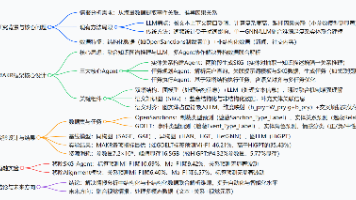pytest接口测试框架 —— 常用装饰器大全
本文全面解析Pytest核心装饰器的参数配置与使用技巧,涵盖测试标记、Fixtures、参数化、执行控制等关键装饰器的参数详解,提供企业级应用场景和自定义装饰器实践,助你精准控制测试行为。
·
一、测试标记类装饰器
1.1 @pytest.mark - 基础标记装饰器
@pytest.mark.标记名称
-
功能:为测试函数/类添加自定义标记
-
常用模式:结合
pytest.ini注册标记 -
验证命令:
pytest --markers # 查看所有已注册标记 -
最佳实践:
# pytest.ini 注册标记 [pytest] markers = smoke: 核心功能验证 regression: 完整回归测试 performance: 性能测试 api: API接口测试 -
实例
import pytest @pytest.mark.smoke def test_login(): """标记为冒烟测试""" assert login("admin", "secure_pass") == True @pytest.mark.regression @pytest.mark.slow def test_report_generation(): """多重标记:回归测试+慢速测试""" assert generate_report().is_valid()
二、控制测试执行的装饰器
2.1 @pytest.mark.skip - 跳过测试
@pytest.mark.skip(reason="跳过原因描述") # 必填,说明跳过原因
-
效果:无条件跳过该测试
-
示例:
@pytest.mark.skip(reason="等待API V3发布") def test_new_api_feature(): ...
2.2 @pytest.mark.skipif - 条件跳过
@pytest.mark.skipif(
condition, # 必填,跳过条件(布尔表达式)
reason="描述" # 必填,条件成立时的跳过原因
)
-
参数说明:
condition:跳过条件,如sys.version_info < (3, 8)reason:跳过解释
-
示例:
@pytest.mark.skipif( not HAS_GPU, reason="需要GPU加速支持" ) def test_gpu_acceleration(): ...
2.3 @pytest.mark.xfail - 预期失败
@pytest.mark.xfail(
condition=None, # 预期失败的条件
reason=None, # 原因说明
strict=False, # 是否严格模式(默认False)
raises=None, # 预期抛出的异常类型
run=True, # 是否执行测试(默认执行)
)
-
参数详解:
参数 类型 默认值 说明 conditionbool None 预期失败条件 reasonstr None 失败原因说明 strictbool False 是否严格模式(通过视为失败) raisesException None 预期抛出的异常类型 runbool True 是否执行测试代码 -
使用场景:
# 已知BUG场景 @pytest.mark.xfail( reason="BUG-123: 缓存失效问题", strict=True ) def test_cache_behavior(): ... # 严格模式(预期失败但实际通过会报错) @pytest.mark.xfail(strict=True, reason="应在此版本修复") def test_should_be_fixed(): assert fixed_function() == "correct"
三、参数化相关装饰器
3.1 @pytest.mark.parametrize - 测试参数化
@pytest.mark.parametrize(
argnames, # 参数名(字符串或列表)
argvalues, # 参数值列表(可迭代对象)
indirect=False, # 是否通过fixture传递参数
ids=None, # 自定义测试ID(可调用函数或列表)
scope=None, # 参数作用域(覆盖fixture作用域)
)
-
参数详解:
参数 说明 示例 argnames参数名称(逗号分隔字符串或列表) “username,password” argvalues参数值列表 [(“user1”, “pass1”), (“user2”, “pass2”)] indirect是否将参数传递给fixture True/False ids自定义测试ID lambda val: f"login_{val[0]}" scope覆盖fixture作用域 “module” -
高级用法:
# 嵌套参数化 @pytest.mark.parametrize("browser", ["chrome", "firefox"]) @pytest.mark.parametrize("os", ["win", "mac"], ids=lambda os: os.upper()) def test_cross_browser(browser, os): ...
四、Fixtures 相关装饰器
4.1 @pytest.fixture - Fixture 定义
@pytest.fixture(
scope="function", # 作用域: function/class/module/session
params=None, # 参数列表(支持参数化)
autouse=False, # 是否自动使用(无需声明)
ids=None, # 参数化ID标识(与params配套)
name=None, # Fixture别名(默认函数名)
)
-
参数详解:
参数 类型 默认 说明 scopestr “function” 作用域范围 paramsiterable None 参数列表 autousebool False 自动应用 idslist/callable None 参数ID namestr None 别名 -
企业级应用:
@pytest.fixture( scope="module", params=["zh-CN", "en-US", "ja-JP"], ids=["中文", "英语", "日语"], name="locale" ) def get_locale(request): return request.param
3.2 @pytest.mark.usefixtures - 应用 Fixture
@pytest.mark.usefixtures(
*args # fixture名称列表
)
-
作用:显式应用fixture到类或模块
-
示例:
@pytest.mark.usefixtures("database", "cache") class TestDataProcessing: ...
五、执行控制类装饰器
5.1 @pytest.mark.timeout - 超时控制
@pytest.mark.timeout(
timeout, # 超时时间(秒)
method="thread", # 控制方法: thread/signal
)
- 参数说明:
timeout:超时时间(秒)method:实现方式(线程或信号)
- 使用注意:Windows 推荐
method="thread"
5.2 @pytest.mark.filterwarnings - 警告过滤
@pytest.mark.filterwarnings(
"action:message" # 过滤规则
)
-
示例:
@pytest.mark.filterwarnings("ignore:deprecated") def test_deprecated_api(): ...
六、异步支持装饰器
5.1 @pytest.mark.asyncio - 异步测试
@pytest.mark.asyncio(
scope="function" # 作用域: function/class/module
)
-
依赖:
pytest-asyncio插件 -
示例:
@pytest.mark.asyncio async def test_async_api(): result = await api_call() assert result
七、自定义标记装饰器
7.1 创建增强型标记
# conftest.py
def priority(level):
return pytest.mark.priority(level=level)
# 使用
@priority("high")
def test_critical():
...
6.2 动态参数标记
def env_specific(env):
return pytest.mark.parametrize("env", [env], indirect=True)
# 使用
@env_specific("staging")
def test_staging_api(env):
...
八、企业级应用参考
8.1 安全测试标记系统
# security_marks.py
def security_test(level="medium", cve=None):
marks = [pytest.mark.security(level=level)]
if cve:
marks.append(pytest.mark.cve(cve))
return marks
# 使用
@security_test("high", cve="CVE-2023-1234")
def test_patch_verification():
...
8.2 CI/CD 环境感知配置
def ci_only():
return pytest.mark.skipif(
not os.getenv("CI"),
reason="只能在CI环境运行"
)
# 使用
@ci_only()
def test_deployment_flow():
...
九、调试与优化技巧
9.1 查看已注册标记
pytest --markers
# 输出:
@pytest.mark.order_processing: 订单处理流程测试
9.2 查看装饰器效果
pytest --collect-only -v
# 输出:
<Function test_critical[high]>
9.3 动态装饰器调试
@pytest.mark.parametrize("data", test_data)
def test_dynamic(data):
print(f"\n当前参数: {data}")
if should_skip(data):
pytest.skip("数据不适用当前环境")
9.4 按标记筛选测试
# 运行所有安全测试
pytest -m security_high
# 排除慢速测试
pytest -m "not slow"
# 组合筛选
pytest -m "security_medium and not slow"
完整装饰器参考:pytest Decorator Documentation
更多推荐
 已为社区贡献4条内容
已为社区贡献4条内容










所有评论(0)